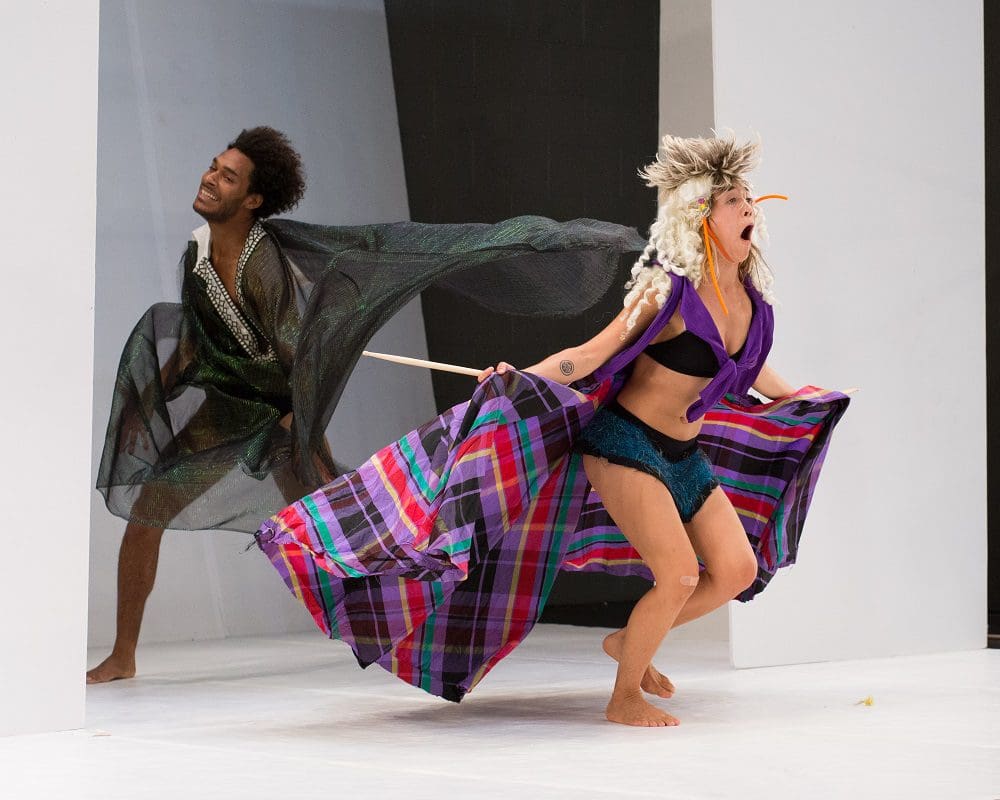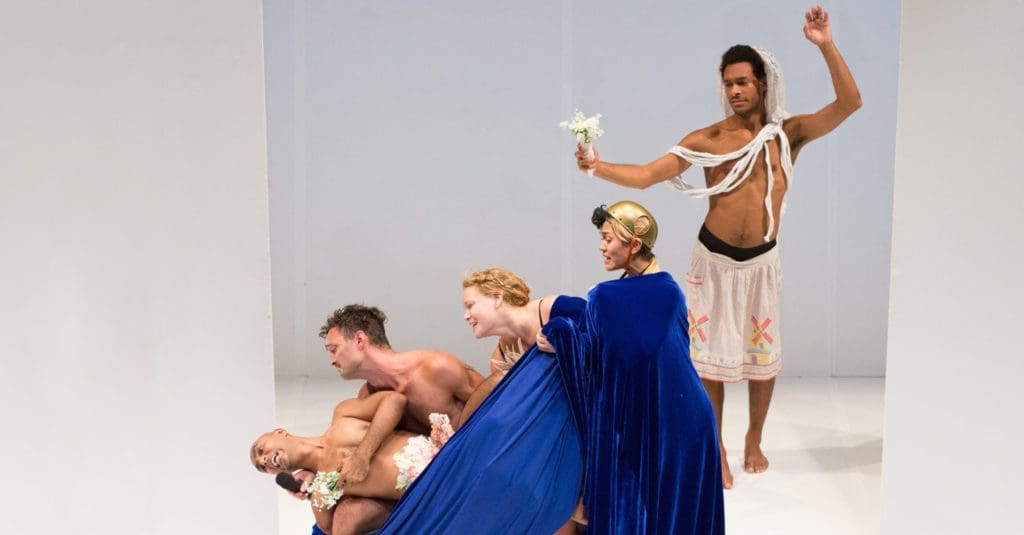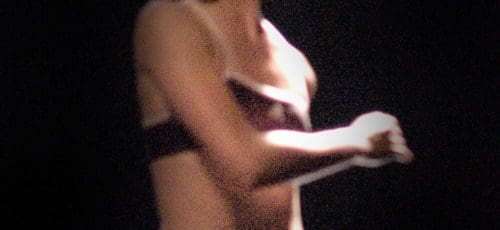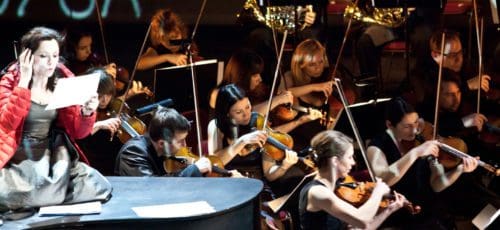Everyday but Amplified: an interview with Faye Driscoll
 Called by one journalist “the most promising performing artist of her generation”, and “one of the most original talents on contemporary dance scene” by another, Faye Driscoll has struck a nerve. But where does she source her deeply original work? The New York-based choreographer gave us the lowdown on her newest work, making its FringeArts debut on Friday, April 14, Thank You For Coming: Play.
Called by one journalist “the most promising performing artist of her generation”, and “one of the most original talents on contemporary dance scene” by another, Faye Driscoll has struck a nerve. But where does she source her deeply original work? The New York-based choreographer gave us the lowdown on her newest work, making its FringeArts debut on Friday, April 14, Thank You For Coming: Play.
FringeArts: What is the idea behind the series Thank You For Coming?
Faye Driscoll: Thank You for Coming is the umbrella title for three distinct works. Each work manifests as radically different from the others, but they are all connected by the same question: How is making and experiencing live performance already a collective and political act? How can I make this politic more felt?
For me as a title Thank You For Coming presupposes that one is in fact there. It’s both a reminder and a gratitude in advance for this presence. The title first came to me while sitting in a taqueria in San Francisco.
FringeArts: And what made Play the right choice for the second installment?
Faye Driscoll: The ideas driving Play were present when I began Attendance—the first of the series—but I put many of them aside as Attendance took shape. Each work is a like a branch of a big weird tree: the branches look really different at the ends, but have similar roots. So when I began Play all of the concepts around storytelling, language, voice/body collisions, and ruptures were all there, ready to be grabbed and sunk into. Each distinct work in the series is simultaneously its own thing and a longer conversation among the works. Because of how I am developing the series, several formal explorations that don’t make it into one work will sprout out in the next. Part 3 will likely have many of the ideas that didn’t make it into Part 2.
FringeArts: How did you work with your performers to develop material and movement for Play?
Faye Driscoll: Here’s a few methods we engaged in: voice to body practice, “exquisite corpse” practice, ventriloquism, spontaneous storytelling, engaging in self-analysis of their own bodies in conversation, and observing how each body moves in dialogue . . . The movement, text, and songs were generated through multiple methods demanding rigorous commitment to improvisation, questioning, personal storytelling from the performers. We studied exactly how we move when we are speaking, re-creating a dialogue word for word—with all of the exact exhales and physical rhythms—and then layering an entirely different conversation but keeping the movements of the mouth and body as if you were having the first conversation. This is nearly impossible. Also part of the making process was derived from the “exquisite corpse” game from the surrealist tradition: we broke up parts of the body and scrabbled them back together into a pastiche of distorted forms that cohere and contrast into new shapes. Legs, arms, torsos, faces move against each other like an askew flip-book in moments arriving in a whole person, or in something altogether othered. Then we would speak from these bodies.
By using these vocabularies that are familiar, yet “made strange” I aim to make work that audience members and performers can recognize themselves in, but with a level of force that is beyond the realm of everyday existence, or is everyday but amplified. I strive to distil all the poignant, weird, vicious, and human moments that make up a life in order to create work that rattles and resonates.
FringeArts: How does human communication—or lack thereof—get explored in this work?
Faye Driscoll: Play explores the labor, failures and constant shape-shifting happening in communication. To communicate anything a collision of multiple parts of us come together—gesture, facial expression, voice, language, sounds, rhythms. It’s always an act of translation. What I am interested is all that effort and all that incoherence we engage in, in the hopes that something will add up and we will finally mean exactly what we say. I wanted to make something where you see all the discrete parts of this process, and perhaps also take pleasure and feel the hope that meaning might be made, but that is also always dipping into the empty spaces of the unknown and inchoate.
FringeArts: What have you worked on most in fine-tuning Play?
Faye Driscoll: So many aspects of this show have needed constant fine-tuning. One example is the tone of the section, which is a kind of wild psychodrama; or the detail of another section which is a study of how body and language are running on distinct tracks. . . . But the hardest thing for me has been the ending. I have two different endings for the show, and after presenting them before an audience I feel like they both work in very different ways. I have never had this experience before!
Thanks Faye!
Thank You For Coming: Play ran at FringeArts April 14th and 15th, 2017.
Interview by Josh McIlvain.



